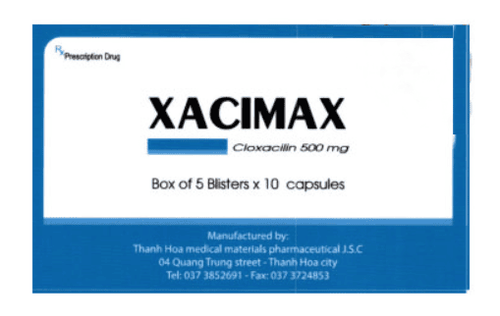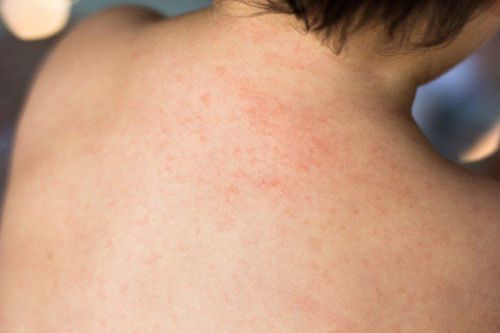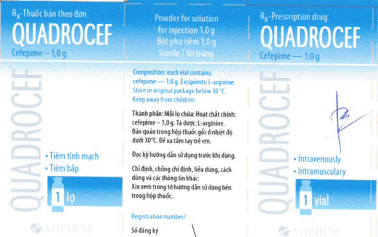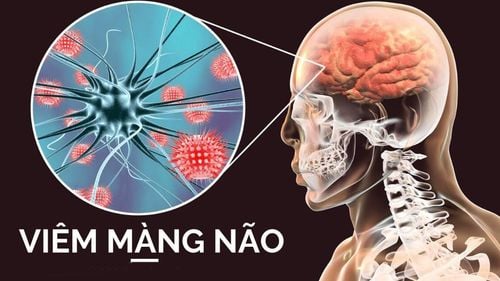This is an automatically translated article.
Meningitis in clear water is a disease that can be encountered at any age, especially young children. If the disease is not detected and treated early, it can lead to many dangerous complications, even death.
1. What is clear water meningitis?
Meningitis clear water (viral meningitis) is a condition in which the tissue layers around the brain and spinal cord become infected by a virus.
Diseases caused by some microorganisms other than viruses such as fungi, parasites, pneumococcus, HI bacteria, drugs, chemicals,... For people with normal healthy immune systems, there is little risk dead. Symptoms usually appear and last for 7-10 days and then disappear completely.
Meningococcal and bacterial meningitis are sometimes confused because the clinical symptoms are somewhat similar. However, bacterial meningitis is more dangerous because it can lead to disability or death if not treated early.
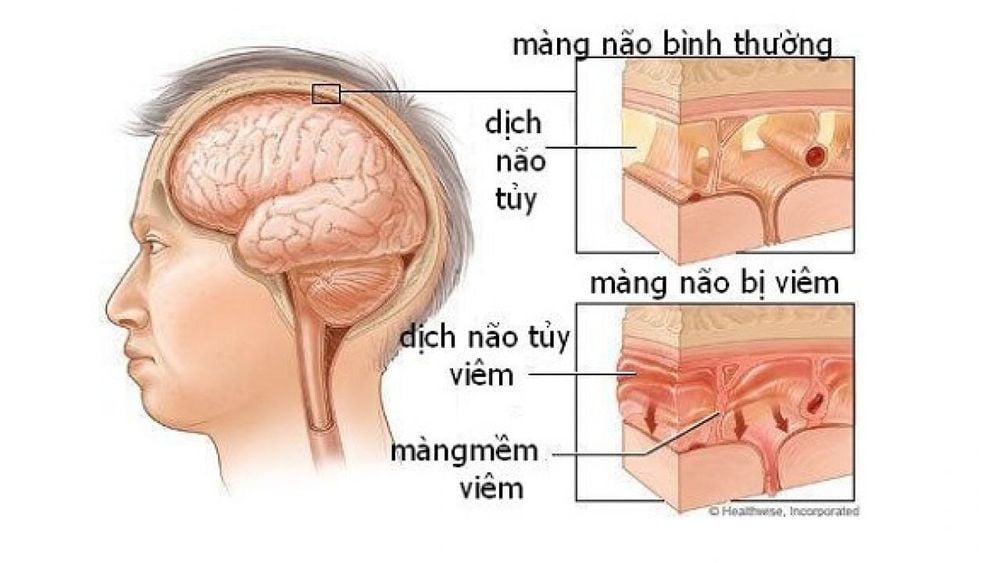
Mô quanh não và tủy bị nhiễm trùng do virus
2. Causes of meningitis in clear water
Infection with different viruses can lead to viral meningitis. However, according to statistics, the majority of cases are caused by Enterovirus. This does not mean that all people infected with Enterovirus develop meningitis, but only a small number of people.
Some other viruses can also lead to clear water meningitis such as Herpesvirus (Herpex simple virus, Epstein - Barr virus, Varicella - Zoster virus) or mumps. Depending on the type of virus that causes the disease, the route of infection of clear water meningitis is also different. For cases of Enterovirus infection, the main route of infection is through direct contact with the feces of an infected person. For example, young children do not have the habit of washing their hands thoroughly after using the toilet or when adults change diapers for an infected child. Chickenpox and mumps viruses can be transmitted by respiratory secretions (saliva, nasal secretions, sputum) directly or indirectly. This condition is usually encountered through kissing or having direct contact with objects that an infected person has handled and rubbed into the mouth or nose. The virus that causes meningitis in clear water has the ability to survive for several days on flat surfaces and from there spread through objects.
3. Clinical and subclinical symptoms of clear water meningitis
3.1 Clinical Symptoms Clinical signs of meningitis may appear immediately or several days after infection with the virus. Usually after a cold, diarrhea, vomiting, runny nose or some other characteristic sign of infection. Children and adults can have different symptoms.
Young children Fever Body restlessness Poor suckling, eating poorly When the baby sleeps, it's hard to wake up

Trẻ ngủ li bì khó đánh thức có thể là triệu chứng viêm màng não nước trong
Adults High fever Continuous and severe headache Neck stiffness Poor appetite, loss of appetite Sensitivity to light Drowsiness and difficulty in awakening 3.2 Subclinical symptoms Usually, clear water meningitis is usually Diagnosis is made by conducting tests of the patient's cerebrospinal fluid. Based on the test results, the doctor can tell whether the patient has a viral or bacterial infection.
Patient is diagnosed with clear water meningitis if:
Clear CSF Pressure slightly increased (less than 200mmH2O) Slight increase in white blood cell count (under 300BC/μl mostly lymphocytes) Protein and glucose levels are normal Usually (if this level is low, it is bacterial meningitis) In addition, to distinguish between viral and bacterial meningitis, it is also possible to test for serum procalcitonin levels or cerebrospinal fluid.
Viral meningitis: Procalcitonin levels are slightly increased or not increased. Bacterial meningitis: Procalcitonin levels increase by at least 0.5 ng/ml (with specificity of 83% and sensitivity of 99%). Besides, it is also possible to diagnose meningitis through complications that can affect the brain by doing physical and imaging tests such as MRI or CT.
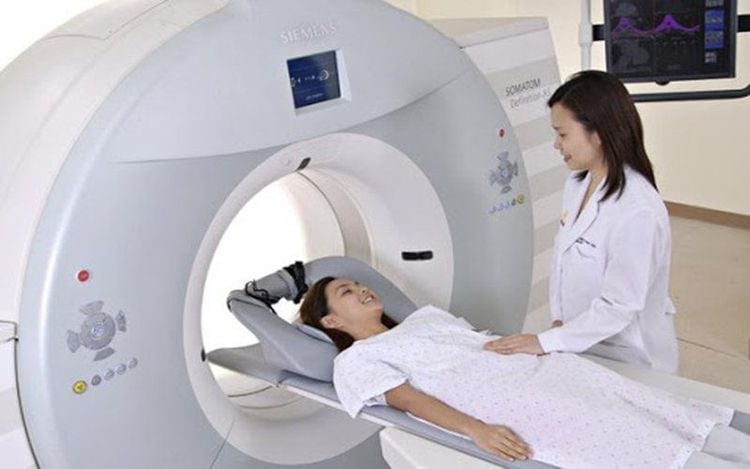
Chụp CT chẩn đoán bệnh bằng phương pháp hình ảnh
4. Treatment and prevention of meningitis
4.1 Treatment Currently, there is no specific treatment for clear water meningitis. Most patients recover completely within 2 weeks.
Antibiotics are ineffective in this case. Patients are only prescribed antibiotics if they have bacterial meningitis. Therefore, doctors often recommend that patients drink enough water, take time to rest and can use some pain relievers and fever reducers according to the doctor's advice.
4.2 Prevention A scientific lifestyle is the most effective way to prevent meningitis, specifically:
Clean hands before eating and after going to the toilet Limit unpasteurized foods like milk, cheese and cooked, drink boiled. Vaccinate against meningitis from a young age. Do not use stimulants such as tobacco, alcohol. Exercise in moderation. Avoid contact with people with meningitis. Although meningococcal meningitis is not directly life-threatening, if not treated promptly, it can also lead to bad complications. Therefore, when detecting abnormal symptoms in the body, you should immediately go to medical facilities to be examined and do diagnostic tests as soon as possible.
Any questions that need to be answered by a specialist doctor as well as customers wishing to be examined and treated at Vinmec International General Hospital, you can contact Vinmec Health System nationwide or register online HERE.





